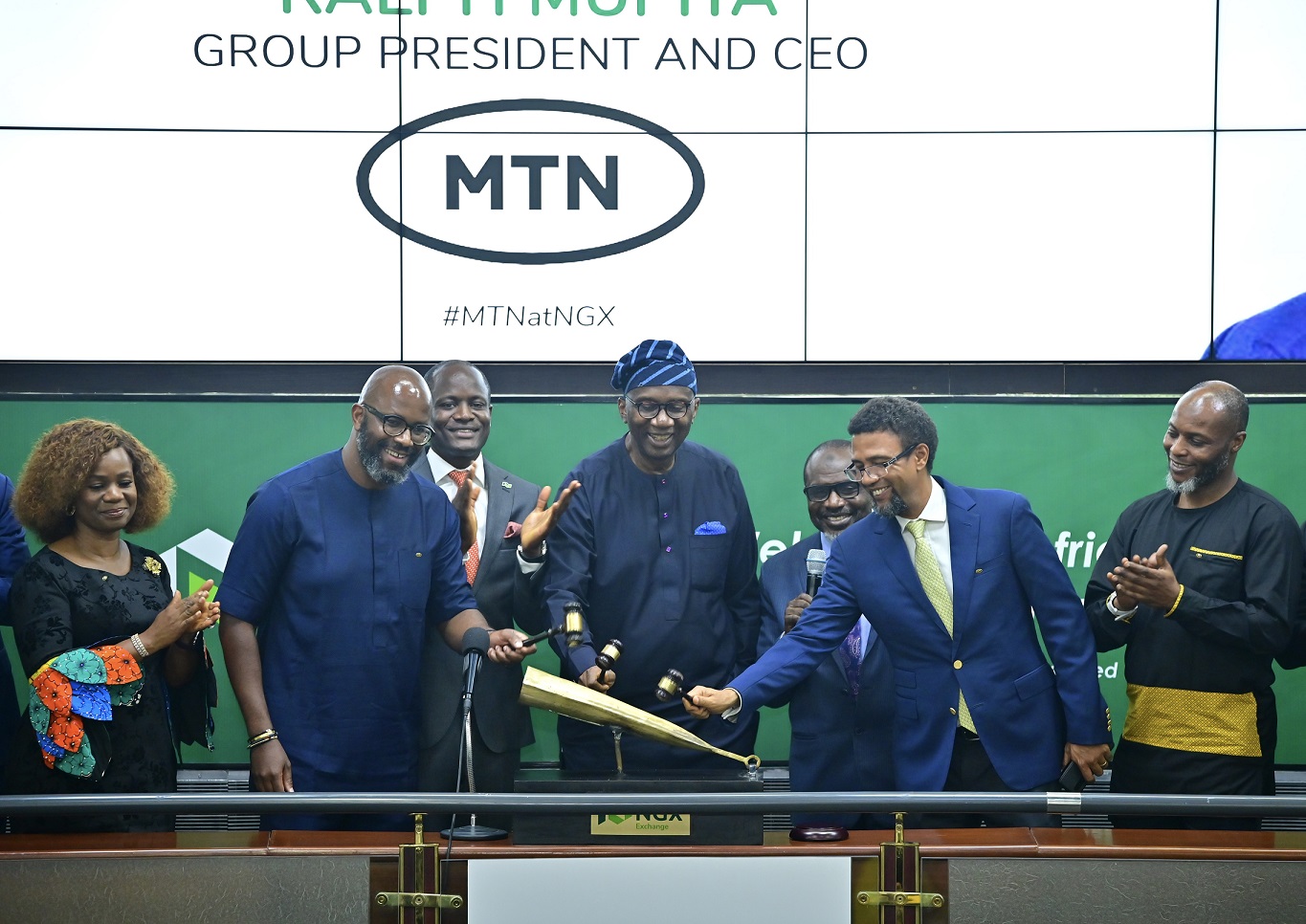Economy
NEITI Recovers N7.43bn Debt From Oil, Gas Firms

By Adedapo Adesanya
The Nigeria Extractive Industries Transparency Initiative (NEITI) has announced the recovery of N7.43 trillion (approximately $4.85 billion) from outstanding payments owed by oil and gas companies, following its industry-wide financial disclosures.
The recovery is part of the total $8.26 billion identified in NEITI’s 2021 oil and gas audit report.
This was disclosed by NEITI’s Executive Secretary, Mr Orji Orji, while speaking during a press briefing in Abuja over the weekend, noting that the recoveries demonstrate the agency’s commitment to transparency and accountability in Nigeria’s extractive sector.
The NEITI chief noted that while significant progress has been made in recovering funds, unresolved financial liabilities remain a major concern.
“So far, over $4.85 billion was recovered from the disclosures of $8.26 billion (made by NEITI in its 2021 oil and gas report. In the 2023 industry reports released in September 2024, NEITI disclosed liabilities of $6.175 billion and N66.378 billion, showing a significant decline from the liabilities of 2021 reports, yet worrisome because of the need for government to find resources to fund its 2025 budget,” Mr Orji stated.
He decried that despite NEITI’s efforts to ensure financial accountability in the oil and gas sector, several companies have continued to default on payments.
He called on relevant government bodies, including the Federal Inland Revenue Service (FIRS) and the Nigerian Upstream Petroleum Regulatory Commission (NUPRC), to take stronger enforcement actions against defaulters and adopt more stringent measures to prevent future revenue leakages.
“Analyses of how these liabilities, when paid, could support the federal government’s domestic revenue mobilization reveals that the liabilities, when converted at N1,500 to one dollar, would amount to N9.33 trillion.
“The sum is more than the federal government’s total budget for health, education, agriculture and food security, which totaled N8.73 trillion. Further analyses show that the sum is also more than the total budget for national security at N6.11 trillion, health at N2.48 trillion and social welfare of N724 billion all put together. The liabilities can also knock off about 72 per cent of the federal government’s budget deficit of N13 trillion for 2025.”
He called on relevant agencies responsible for collecting these revenues to do what is needed and support our governments at all levels to provide the much-needed infrastructure for our citizens,” he stated.
Mr Orji further disclosed plans to broaden the initiative’s industry-wide reports to include dedicated sections on divestments, forward sales of oil and gas assets, and environmental remediation.
This move, he noted, is aimed at strengthening transparency and accountability in the extractive sector.
He stated that while the agency’s current Beneficial Ownership data is up-to-date as of 2023, more work is needed to deepen engagements and public disclosures on companies acquiring divested assets.
Mr Orji highlighted challenges such as institutional constraints, funding limitations, and resistance to change.
He called for collective efforts from the media, civil society, and stakeholders to ensure that Nigeria’s oil, gas, and mining revenues are managed prudently for the benefit of all citizens.
“Transparency is not just a policy; it is a responsibility. NEITI remains steadfast in ensuring that Nigeria’s extractive revenues are accounted for and utilized effectively,” he added.
Economy
Investors Gain N333bn Trading Nigerian Equities

By Dipo Olowookere
A 0.31 per cent gain was recorded by the Nigerian Exchange (NGX) Limited on Tuesday, helped by renewed bargain-hunting by investors, with the year-to-date return extending to 6.61 per cent.
It was observed that the growth achieved by Customs Street yesterday was supported by the banking and the industrial goods indices, which went up by 1.32 per cent and 0.69 per cent apiece.
They offset the losses recorded by the three other sectors, with the insurance counter down by 1.32 per cent, the consumer goods segment down by 0.23 per cent, and the energy space down by 0.17 per cent.
At the close of business, the All-Share Index (ASI) increased by 516.94 points to 165,901.57 points from 165,384.63 points and the market capitalization appreciated by N333 billion to N106.495 trillion from N106.162 trillion.
The market breadth index was positive yesterday after the bourse ended with 35 price gainers and 34 price losers, representing bullish investor sentiment.
The quartet of Industrial and Medical Gases (IMG), Union Dicon, Zichis, and Austin Laz chalked up 10.00 per cent each to sell for N34.65, N9.90, N5.06, and N4.07, respectively, while RT Briscoe appreciated by 9.95 per cent to N9.50.
On the flip side, Omatek lost 10.00 per cent to trade at N2.43, Cutix also fell by 10.00 per cent to N3.15, Union Homes shrank by 9.95 per cent to N76.90, Sunu Assurances declined by 9.94 per cent to N4.62, and Deap Capital crashed by 9.93 per cent to N7.62.
During the trading day, 736.4 million stocks worth N24.7 billion exchanged hands in 46,026 deals compared with the 762.8 million stocks valued at N18.4 billion traded in 55,374 deals a day earlier, indicating a rise in the trading value by 34.24 per cent, and a slip in the trading volume and number of deals by 3.46 per cent and 16.88 per cent apiece.
The activity chart was led by volume on the second trading session of the week by GTCO with 65.9 million equities valued at N6.5 billion, Chams transacted 55.7 million shares worth N249.8 million, Custodian Investment traded 49.8 million stocks for N2.2 billion, Universal Insurance sold 36.1 million equities valued at N51.5 million, and Zenith Bank exchanged 35.4 million shares worth N2.6 billion.
Economy
Oil Market Rises 2% on Fresh Iran-US Confrontation

By Adedapo Adesanya
The oil market was up by nearly 2 per cent on Tuesday after the United States shot down an Iranian drone approaching an aircraft carrier and armed boats in the Strait of Hormuz, stoking concerns talks aimed at de-escalating US-Iran tensions could be disrupted.
This action caused the Brent futures to rise by $1.03 or 1.6 per cent to $67.33 per barrel, as the US West Texas Intermediate (WTI) futures jumped by $1.07 or 1.7 per cent to $63.21 a barrel.
Both crude benchmarks dropped more than 4 per cent on Monday after President Donald Trump said Iran was seriously talking with America.
However, the US military shot down an Iranian drone that “aggressively” approached the Abraham Lincoln aircraft carrier in the Arabian Sea on Tuesday.
In the Strait of Hormuz between the Persian Gulf and the Gulf of Oman, Iranian gunboats approached a US-flagged oil tanker in what US and British maritime security sources describe as a failed attempt to interfere with the vessel’s transit.
Members of the Organisation of the Petroleum Exporting Countries (OPEC) including Saudi Arabia, Iran, the United Arab Emirates, Kuwait and Iraq export most of their crude via the strait, mainly to Asia. The Strait of Hormuz, through which roughly a fifth of the world’s oil supply passes, remains Iran’s most obvious pressure point.
Despite the latest development, the UAE urged Iran and the US on Tuesday to use the resumption of nuclear talks this week to resolve a standoff that has led to mutual threats of air strikes. Iran, meanwhile, is demanding that talks be held in Oman not Turkey.
In Ukraine, President Volodymyr Zelenskiy accused Russia on Tuesday of exploiting a US-backed energy truce to stockpile munitions, and using them to attack Ukraine a day before peace talks. This boosted worries that Russia’s oil would remain sanctioned for longer.
On Monday, President Trump announced a trade deal with India, one of the world’s biggest economies and oil importers, on Monday to cut tariffs to 18 per cent from 50 per cent in exchange for the country halting Russian oil purchases and lowering trade barriers.
The American Petroleum Institute (API) estimated that crude oil inventories in the US decreased by 11.1 million barrels in the week ending January 30. Crude oil inventories decreased by 247,000 barrels in the week prior.
Official data from the US Energy Information Administration (EIA) will be published later on Wednesday.
Economy
AFC Commits Support to Transformative Reforms in Nigeria’s Power Sector

By Adedapo Adesanya
The Africa Finance Corporation (AFC), the continent’s leading infrastructure solutions provider, has reiterated its commitment to playing a pivotal role to support transformative reforms in Nigeria’s power sector.
This is as it act as co-Financial Adviser to the Nigerian government on the successful issuance of the recent N501 billion inaugural tranche under the Presidential Power Sector Financial Reforms Programme (PPSFRP), as part of the N4 trillion Power Sector Bond Programme, aimed at resolving over a decade of legacy debt obligations in Nigeria’s electricity supply industry and restoring financial stability across the sector.
AFC provided comprehensive financial advisory services to the federal government, including the design of the Programme’s negotiation strategy framework, support in negotiating and executing Settlement Agreements with Power Generation Companies (GenCos), and structuring the bond issuance. Working in partnership with CardinalStone Partners as co-Financial Advisers, AFC deployed its deep sector expertise and strong local market knowledge to deliver the landmark transaction.
The programme was overseen by the Presidential Power Sector Debt Reduction Committee (PPSDRC), with technical leadership from the Office of the Special Adviser to the President on Energy, and implemented through NBET Finance Company Plc, a special purpose vehicle of Nigerian Bulk Electricity Trading Plc (NBET). Proceeds from the issuance will be used to settle verified, overdue receivables owed to GenCos for electricity supplied between February 2015 and March 2025, injecting liquidity into the power sector and extinguishing long-standing claims.
Commenting on AFC’s involvement, Mr Banji Fehintola, Executive Board Member and Head, Financial Services at Africa Finance Corporation, said: “The successful issuance of the inaugural tranche under the Power Sector Bond Programme underscores AFC’s commitment to supporting transformative reforms in Nigeria’s power sector. By resolving long-standing liquidity challenges and restoring confidence among investors and operators, this transaction lays the foundation for sustainable growth and improved electricity supply across the country.”
When fully implemented, the programme is expected to impact approximately 5,398MW of electricity generation capacity by Nigerian GenCos and finalise settlement for 290,644.84GWh of electricity billed since 2015. It will also strengthen companies serving about 12 million active registered customers, creating a solid platform for new investments in capacity enhancement and expansion.
-

 Feature/OPED6 years ago
Feature/OPED6 years agoDavos was Different this year
-
Travel/Tourism9 years ago
Lagos Seals Western Lodge Hotel In Ikorodu
-

 Showbiz3 years ago
Showbiz3 years agoEstranged Lover Releases Videos of Empress Njamah Bathing
-

 Banking8 years ago
Banking8 years agoSort Codes of GTBank Branches in Nigeria
-

 Economy3 years ago
Economy3 years agoSubsidy Removal: CNG at N130 Per Litre Cheaper Than Petrol—IPMAN
-

 Banking3 years ago
Banking3 years agoSort Codes of UBA Branches in Nigeria
-

 Banking3 years ago
Banking3 years agoFirst Bank Announces Planned Downtime
-

 Sports3 years ago
Sports3 years agoHighest Paid Nigerian Footballer – How Much Do Nigerian Footballers Earn











